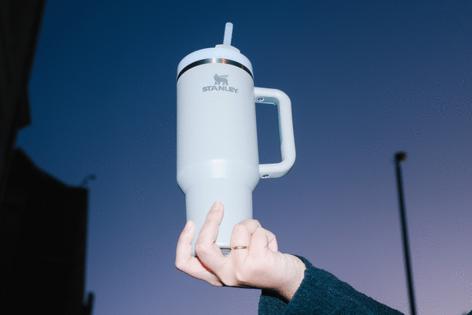Amazon vendors sold counterfeit Stanley tumblers, lawsuit alleges
Published in Business News
Stanley tumblers are causing a stir on Amazon’s marketplace, with two vendors accused of marketing and selling counterfeit versions to customers.
Amazon and Pacific Market International, the Seattle-based parent company of the widely sought-after Stanley-branded products, sued two independent Amazon vendors for allegedly selling counterfeit water bottles under the Stanley name.
The independent sellers marketed the counterfeit goods for nearly six months, starting in November 2023, according to the lawsuit filed Monday in federal district court in the Western District of Washington.
Amazon shut down the sellers’ accounts in March and May and issued refunds to customers who had purchased the counterfeit goods, the lawsuit said. Neither the lawsuit nor Amazon disclosed how many fraudulent tumblers were sold or how much each product cost.
An Amazon spokesperson said the company has a “zero-tolerance policy” for counterfeit goods.
“Once we identified this issue, we acted quickly to protect customers and the Stanley brand,” the spokesperson continued. “Amazon will continue to hold bad actors accountable and protect customers, brands, selling partners and our store from fraud and abuse.”
The claims are lobbed at two sellers — one based in Oregon and one in Wisconsin — who allegedly worked together to knowingly market and sell counterfeit goods, a violation of Amazon’s policies, the lawsuit read. The Seattle Times was unable to reach the accused sellers.
Stanley’s parent company Pacific Market International, or PMI, did not respond to requests for comment.
Stanley, founded in 1913 in Massachusetts and acquired by Seattle-based PMI in 2002, is among the most popular water bottles today. The brand’s success is fueled by viral TikTok posts showing off limited edition versions and the tumbler’s durability — even in a fire.
Over the last two years, searches for “Stanley Cup” on Amazon jumped from 30,000 per week to more than 600,000, putting its search rate way higher than its competitors in the tumbler space, according to an August report from marketing analytics platform Jungle Scout.
The viral tumblers were at the center of another legal storm earlier this year following allegations that PMI intentionally misled consumers about the presence of lead in its products.
In response, PMI said the area containing lead is covered with stainless steel, and that lead is not present on the surface of any Stanley product that comes into contact with the user.
But some Stanley owners worried about what would happen if the tumblers are damaged or worn out, according to a pair of lawsuits filed in Washington in February.
In the counterfeit lawsuit filed Monday, Amazon and PMI accused the two vendors of misleading both Amazon and Amazon shoppers through the sale of inauthentic products. Amazon accused the sellers of providing fake invoices and refusing to reimburse Amazon for customer refunds.
Amazon and PMI asked the court to order the sellers to pay damages and provide a full account of expenses as a result of the counterfeit products, as well as permitting the destruction of any remaining fraudulent tumblers.
Amazon invested $1.2 billion and employed 15,000 people in 2023 to combat counterfeits and frauds in its digital store, according to the lawsuit. The company’s Counterfeit Crimes Unit identified and seized more than seven million fraudulent products last year and pursued litigation against 21,000 bad actors, Amazon’s CCU website says.
Amazon offers third-party sellers and popular brands a handful of services to help stop the sale of counterfeit goods, even if those brands aren’t currently selling on Amazon’s platform.
Those services include Transparency, which allows brands to add a unique code to each product to ensure authenticity, and Project Zero, a self-service counterfeit removal tool. Another service, Brand Registry, uses machine learning to identify possible fraudulent products.
©2024 The Seattle Times. Visit seattletimes.com. Distributed by Tribune Content Agency, LLC.












Comments